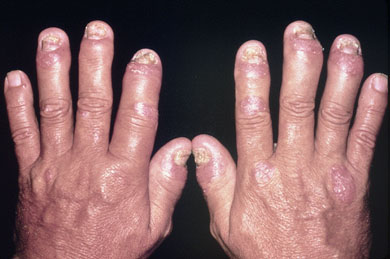Update (7/28): A nurse read my post and sent me a comment. I have included it below. Also, as pointed out by Karen in the comments section, nurses can be “hims” as well. It wasn’t my intention to leave out all the wonderful male nurses. Initially I had written this post with “him/her” but it felt too awkward. And due to my grammatical issues, I couldn’t bring myself to use “they” when referring to single nurse.
*****
Last week, in my post titled Doctors & Nurses, K8 left this comment/question:
I’m about to start the journey of medical school. If you had to give advice to someone just starting, what would you say is the best way to appreciate and/or get along with the nursing staff?
I thought that was a great question. And if you glance back at that post, you’ll see that I said I’d answer her question in a separate post because I thought it was such a good question. Now, I still think it’s a good question, but I am struggling with coming up with a good answer — at least a good enough answer to justify writing a separate post for it.
As I look back on my 3rd year rotations, I’d say most (probably 98%+) of my interactions with nurses have ranged from neutral to very positive. I remember the first time I felt like I encountered a rather — gruff — nurse. She kind of just brushed me off. She was busy. It wasn’t like she was overtly mean to me. Another time I asked a nurse to do something and she mumbled about doing it later. I was like, ok… and my senior resident swooped in and let her know that we needed it done immediately. Needless to say she was not happy with him. But she did what he asked. In her defense, she was having a bad day before we talked to her. I had seen her on the verge of tears minutes earlier.
I guess I can only remember 2 sort-of-negative experiences. The rest of the time I have had nurses who at least answered me. Other– er, many times I have been roaming the halls of the hospital, completely lost, and a nurse is usually the one who asks me if I need help and points me in the right direction. Other times I have been staring at a stack of charts and a nurse chimes in asking which one I am looking for and she finds it for me.
On the other hand, I know that there are medical students who have had bad experiences with nurses. One classmate of mine recounted one instance that almost had her in tears. I’d like to think that this is more the exception, though.
But back to the question that I had intended to answer.
Do I have a secret to dealing or getting along with nurses? No. Everyone will do it differently based on their own personalities. And admittedly, there will be some personalities that may not mesh very well. Occasionally I watched as some of my classmates interacted with the nurses. Honestly, there were times I cringed. I felt like they were treating them like “the help.” Sure, it was a snapshot; maybe my classmate was having a bad day.
As for me, one thing I made a point of doing was to introduce myself by first name to a nurse during my first conversation with her. Usually this would be in the beginning of the conversation. The introduction usually got me their name too. And I tried to use her name each day when I saw her. Because when you follow an inpatient for even a few days, most likely you will have to talk to the patient’s nurse multiple times. I never cared if the nurse remembered my name or not. But I wanted her to know that I knew her name.
That’s pretty much it. That’s my answer. Because at the root of it, all they want is respect for the hard work they do.
*****
After posting this, I received a comment from @eyeseeyouarein, an ICU nurse:
Take good care of your patients, we’ll like you. Do that and treat us with respect, listen to us, and show common courtesy in your communications? We’ll love you. Get to know us, trust our judgement, and be our partner in care? We’ll cover your ass.
So there you have it… a perspective from the nursing side of things.






